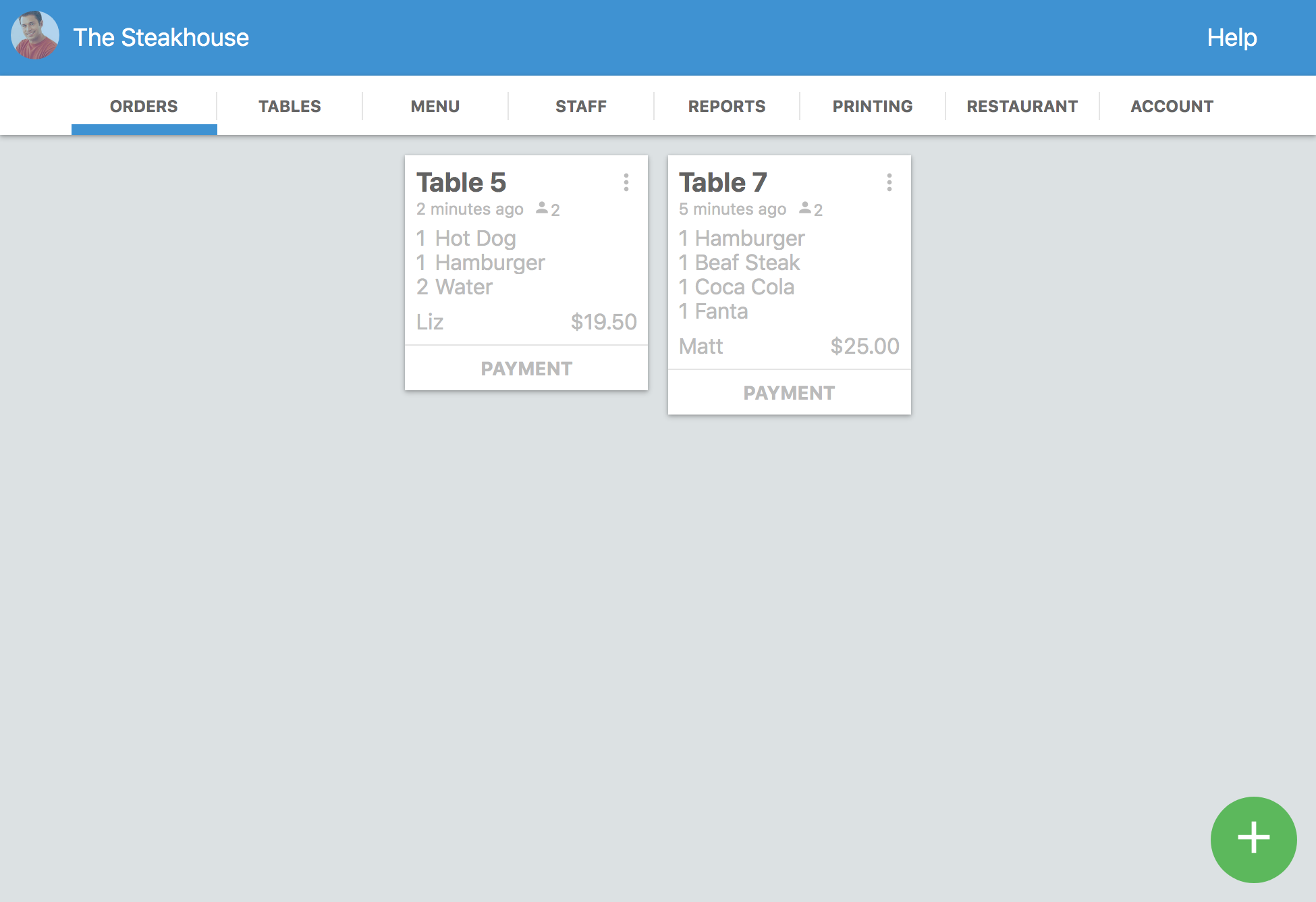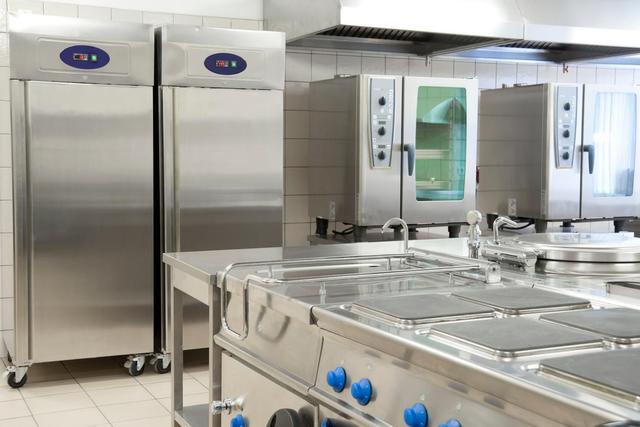Need to recruit waiters for your restaurant?
Want to know the secret behind keeping your waiters (servers) satisfied?
A restaurant's primary goal is to satisfy your customers by delivering the best quality service so that they keep coming back to your restaurant.
To achieve that, you need to have reliable staff members. From restaurant managers to chefs and servers, everyone should be good at their job. Waiters are the face of your business; they are first to receive all the criticism or compliments.
So that's why it's crucial to choose the best waiters for your restaurant. It would be best if you also kept your waiters satisfied, or they will quit their job.
How To Hire Waiters For Your Restaurant? [7 Useful Tips]

The waiter selection process and employment are often the best if taken by recommendations from partners, colleagues, or another restaurant.
There is always a race for finding skilled waiters within the restaurant industry. Sometimes some good waiters are transferred between restaurants by offering higher payments and better working conditions.
So you should first consider recommendations before searching for new people and posting a job position online.
In case there is no such option, then goes the more exhaustive selection process. No matter the education, age, or experience, the employee's quality will be evident after the job starts. That is why it is good to have a probation period for at least one month to ensure that the candidate is right for your restaurant.
1. What Should You Look For While Hiring A Waiter?
Regarding experience: it is good for a candidate to have it, but in a restaurant environment, sometimes just the attitude, character, willingness to work and learn new things, and to have a great connection with people, is what the restaurant and its guests need.
The right candidate has to be strong as an individual and robust in working inside a team. Hospitality is a passion, and people need to understand it and be educated before they start.
Working as a waiter looks easy, and most people think that everyone can do that job.
True, but to be a professional waiter and have the most excellent service requires a lot of practice, time, and dedication.
2. Have A Probation Period For Your Newly Recruited Waiters
During the probation period, restaurant managers can see all aspects of the candidate. For example:
- Relationship with guests
- Quality of service delivery
- Relations with colleagues
- Working under pressure
- Productivity
- Attitude
- Leadership skills
The probation period will give a good insight into the person and help the managers and restaurant owners to decide whether they should offer a long-term contract to the candidate or search for another person.
3. Check References From Previous Employers
As for recommendations, references play an important role. If there is a search for experienced candidates, then contacting previous employers and getting information about the candidate should be considered.
This is an excellent way to ensure that the candidate is capable.
4. Understand Your Requirements

Employers should give as many details as possible regarding their offer and requirements when posting a job online. This is because it will narrow down the candidates and expect only “the right ones” to apply for the selection process. This will save a lot of time for interviews because the candidates will know from the beginning whether the offer is suitable for them or if they are capable of meeting the standards of the restaurant.
New employees can make mistakes while getting familiar with the standards and requirements of the restaurant. Still, it is essential to evaluate them, give them feedback, pay attention to the level of engagement and train them all the time.
Mistakes are acceptable, but dedication and engagement show that the candidate is ready to take responsibility. Each new staff member should be introduced and welcomed by the whole team and supported during the evaluation process.
5. Look For These Qualities While Hiring
Overall qualities that waiters should have are:
- Appearance
- Punctuality
- Paying attention to details
- Manners
- Attitude
- Friendliness
- Observance
- Kindness
- Productivity (fast decision making)
- Patience
- Good memory and concentration
- Good teamwork
You can test the applicants with some situations that may happen in the restaurant to see how they would handle it - that is an excellent way to see how fast they think and their leadership skills.
However, the hospitality industry is still a few industries that need a personal touch and people involved. This can’t be done online or from home like other jobs, so the practical part (probation) is the key in the selection process.
The interview might give you some basic feel about the candidate, but the work performance is what really matters.
6. The First Impression Is Important
While having interviews, pay attention to the first impression you will have from the first moment the candidate walks in. That is the impression customers will have when the waiter approaches their table.
Let the candidates introduce themselves and pay attention to their attitude and body language.
Look if the candidate gives you eye contact because it shows friendliness and acknowledgment to the guest. Working in a restaurant requires someone who is easygoing in communication and has a friendly attitude.
7. Questions You Should Ask During The Interview

Working inside a restaurant sometimes can be relaxed and easygoing, but sometimes it can give a hard time and pressure to the waiter. Therefore, you should adjust your interview according to that.
First, ask easy questions that will relax the candidates; some personal things like their favorite movie or where they like to travel. Give them space to present themselves in the best possible light and see how they act when talking about things they like.
On the other hand, give them some sort of pressure by inputting questions that might not be the topic you are discussing at the moment. See how they react when the mood changes and how skillful they are.
Ask them hypothetical questions and let them imagine situations that might occur while working in the restaurant and how they would solve them.
How To Manage Your Waiters Properly? [Keep Your Waiters Happy And Satisfied]
After selecting candidates and creating a team, the idea is to build the best team you can have and keep them satisfied. You don’t want them to quit their jobs since it will be a loss for your restaurant. Here are some tips you need to keep in mind:
1. Training
The critical element to having a successful team and wait staff is training. The managers must give their maximum effort to train their staff according to their standards. They need to dedicate their time to their employees and to educate them.
Also, the management team is responsible for providing a comfortable working environment for all staff members by giving them only constructive criticism. But, they also need to give them compliments and cheer them up for the excellent work.
Training should include:
- The overall appearance of staff members
- Good behavior and courtesy
- Knowledge about the menu and ingredients of each item on the menu.
- Wine tasting and knowledge about the bar so the servers can recommend suitable beverages for every meal.
Hygiene is essential when working with food and serving, so there should be training about maintaining it inside the restaurant and working stations and how to handle food from the kitchen to the guest.
Servers should be trained according to the type of restaurant and serving style - whether it is a fine-dining or fast-food restaurant. That includes the way of serving and table setting.
2. Building A Community

It is essential to build a community within your restaurant. People like the feeling of belonging. Employers or managers should treat their employees in the best way possible. They should encourage them to speak when feeling overwhelmed and to share their best experiences.
Restaurant staff members spend many hours of their life on work, so the work environment should have a sense of a “second family.”
Pressure is commonly present in restaurants when working with people, so additional pressure caused by staff members or restaurant managers isn’t going to give good results.
Waiters should have a feeling that the employer cares about them. You can do this by:
- Organizing team buildings
- Collective gatherings (events dedicated to staff members)
- Bonuses
- Encouraging staff all the time
- “Employee of the month” system
- Courses (education)
If there is extra time, some additional education of restaurant staff is a good choice. For example, wine tasting lessons by a professional, language sessions, innovations in gastronomy, etc.
What to do when your waiters make mistakes?.
If employees make mistakes, they should be trained better. Patience plays a key role when working within a collective where teamwork is present. Usually, a bad working environment and unsatisfied workers are the results of lousy restaurant management.
But if staff members are treated well, in return, you have people who are reliable and will respect the care and time dedicated to them. In a team where relationships are based on respect, most of the time, everything works.
3. Working Conditions
Good working conditions and a healthy work environment are created by:
- Satisfying salaries
- Emotional support
- Fixed shifts
- Extra payments for extra working hours
- Good management of working hours by providing space in between for rest.
Overworked waiters will not have a good performance. Good quality meals are also important. Usually, in restaurants, staff members are fed with leftovers because of a high percentage of food waste. It might affect the budget, but in agreement with chefs, you can make healthy meals for the employees.
Another way to encourage waiters or servers to be in the consistent "battle" for the best performance is to have a grading system.
Usually, that is accomplished by choosing an "employee of the month."
The award can be through holidays or monetary bonus. It won't cost the restaurant a lot, but it will show appreciation to the staff members and encourage them to deliver even more outstanding service in the future.
Having a hierarchy among the serving staff in the restaurant can be good so that every waiter can expect some promotion to higher levels after their months or years spent in the restaurant.
4. Tipping

Working as a waiter can be challenging and stressful because you should be highly focused on delivering the best quality service. Sometimes, it is also a physical job (carrying and moving things around). However, it can be a gratifying job: because waiters can sometimes have more tips than the actual salary.
The better performance the waiters offer, the more tips they get.
For tipping methods, it is best for the restaurateurs or managers not to get involved in. They should be involved only if there is some dispute between employees. It is on the collective agreement whether they want to share the tips or not.
There are pros and cons for all options about tipping “policy.” Sharing restaurant tips between staff is a good idea because in that case, everyone gets the tips - the host, chefs, supervisor, people who are not in direct touch with money, not only waiters.
However, there is an issue that few waiters can give their best effort to deliver the best quality service. In contrast, other colleagues deliver average service and end up anyway with the money made by the high-quality performance waiters.
Due to long experience and different scenarios, the best possible option for tipping is to give the ability for the staff members to share tips. But they can keep the tips for themselves if the guest explicitly gives the tips to a particular waiter because of their outstanding service.
5. Bonuses
A great way to keep your employees satisfied is bonuses. So far we understand that waiters receive good money through salaries and tips.
You have excellent waiters; you must try to keep them working for your restaurant. You dedicated time educating those people, and any lost waiter is a significant loss for the restaurant. So that’s why the bonuses are essential.
According to their average sales during a particular season, restaurant managers should have some monthly targets for sales inside the restaurant.
If those targets are accomplished, and there is an additional profit above, that should be divided between the employees within the team. Or, you can give bonuses by assessing an individual waiter’s performance. For example, the ‘employee of the month’ gets a bonus.




